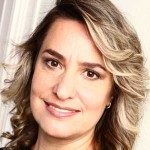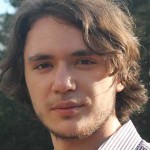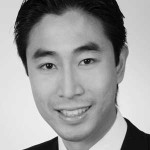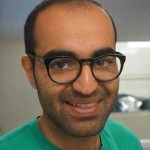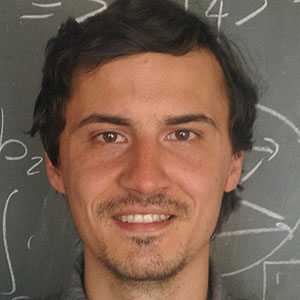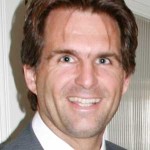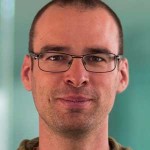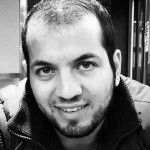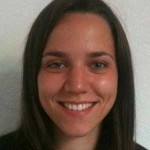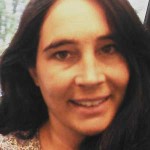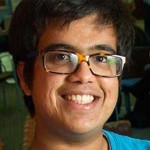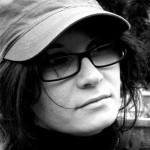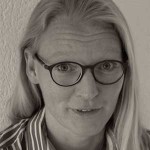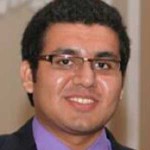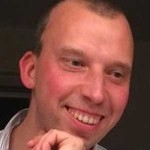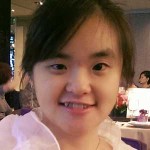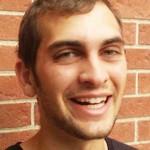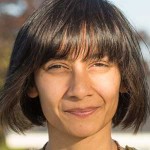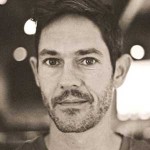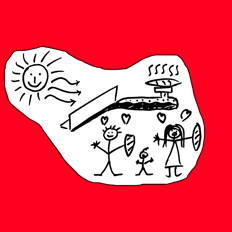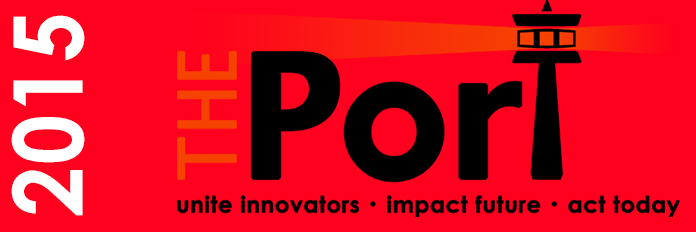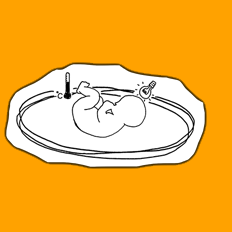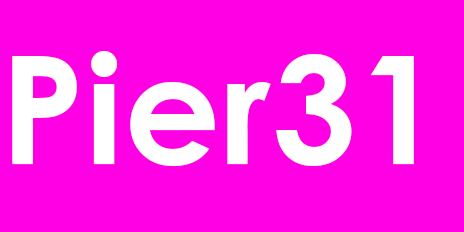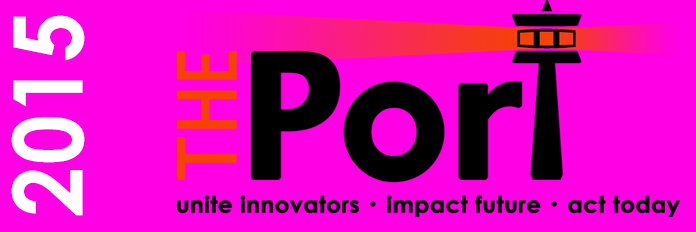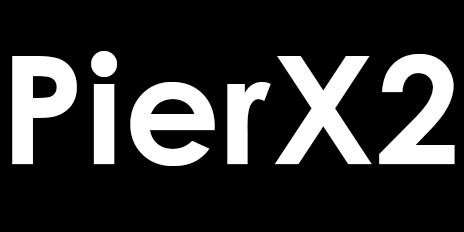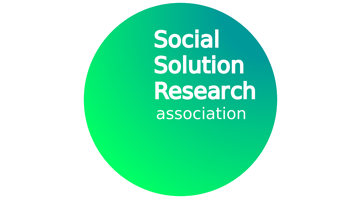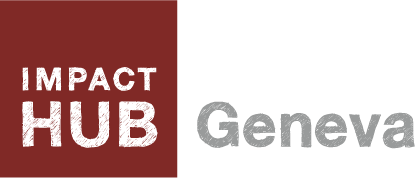THE Port 2015 CERN
2.10.-04.10.2015 – IdeaSquare, CERN, Geneva, Switzerland
Topics 2015
Our topics selected for the 2015 edition are inspired by friends and colleagues working at Red Cross, United Nations and many other NGOs in and around Geneva.
Topics of the last year’s 2014 edition you find here and summarised in our annual report.
Recordings of THE Port 2015 Final Presentations at CERN you find here.
-
Pier14
Solar collectors focus sunlight in order to heat up fluids such as water or oil that can then be used for creating electricity, provide heating or enable disinfection or sterilization. Such applications could be extremely useful in a humanitarian context, e.g. in remote areas where there is no electricity grid available.

Humanitarian Applications of an Efficient Solar Collector Device
-
Pier15
In recent years the proportion of counterfeit drugs, especially in some African countries, increased dramatically up to levels of 60-80%. International organisations therefore buy their medication in Europe or the US or need to send samples back to Europe/US for chemical analysis before they can be released. This causes several week delays and significant costs. Clients of local pharmacies don’t have this possibility and especially harming contaminations are a significant risk for them.

Qualitative & Quantitative Analysis of Counterfeit Drugs
-
Pier20
Premature babies need incubators to survive their first days of life; however, they are still lacking in most district hospitals in developing countries. There is thus a need to develop an infant incubator that is affordable, effective and sustainable specifically for the constraints encountered in these contexts.

Low Cost High Tech Infant Incubator
-
Pier22
Use of explosives especially in populated areas is the defining phenomenon of the last and current century. Still today, such events remain in the domain of eyewitness accounts or official statements. The e3e Monitor would permit with multi technology detector systems a real-time monitoring on an entirely objective basis of explosions and other extreme energy events.
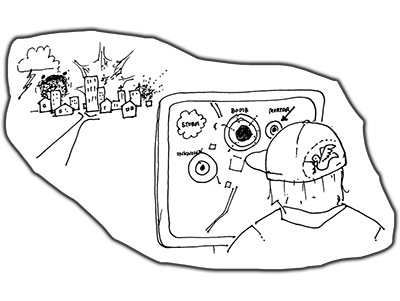
Explosions and Other Extreme Energy Event Real-Time Monitor
-
Pier31
Often there is a need for the rapid deployment of robust and secure housing for humanitarian relief. At the same time many natural disasters create enormous amounts of debris. It’s removal has high priority as it hinders humanitarian help. Currently tents and temporary shelters are transported as needed but could 3D printed technologies replace or supplement it? Could 3D printing be used for further use cases in refugee camps?
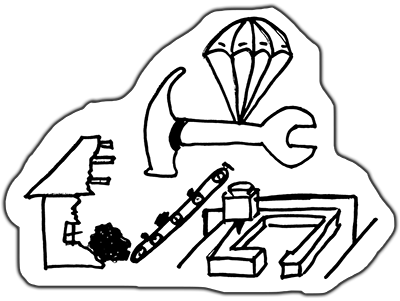
Rapid Production of Housing & Shelters
-
PierX2
Cosmic ray experiments are normally large, expensive and require specialist knowledge to use. We want to give everyone the opportunity to be a scientist with an affordable, collective cosmic ray detector.

Cheap, Distributed Cosmic Ray Detector
Teams 2015
Six inter-disciplinary teams with about 10 members each had 6 weeks of preparation time with video-conference meetings and a 60 hour final hackathon to build working prototypes and tangible solutions for real-life humanitarian problems.
Global coach mechanics: NN – Global coach electronics: Sylvain Kaufman
Global coach entrepreneurship: Felix Stähli – Knowledge transfer: CERN KT
Team: The Sunshine Crew
Coaches: Hansdieter Schweiger and David Mazur

Alex Zahnd (CH)
Alex studied Mechanical Engineering and holds an MSc in Renewable Energy and a PhD in Renewable Energy. He worked for development projects in extrusion technology for the food and plastic industry and pharmaceutical production plants in Switzerland. He lives in Nepal since 1996, leading projects in the remotest and poorest mountain communities in the Nepal Himalayas. In 2002 he co-founded the not-for-profit NGO RIDS-Nepal and in 2013 RIDS-Switzerland through which he has since been partnering with over 30 impoverished high-altitude Himalayan village communities for long-term projects. He was elected as a member of the Swiss Academy of Engineering Sciences (SATW) in 2007 and since 2012 he is also a Visiting Scholar at UCSD in California USA.
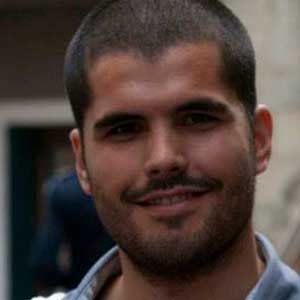
Alexandre Carvalho (PT)
Alexandre is an aerospace engineer, graduated from the University of Lisbon, and he is currently a structural engineer trainee at CERN, designing and assessing structures for future updates on the LHC and other projects. He has expertise in engineering calculations, product designing and production methods. He hopes to spend his life working in projects that have a positive impact in the world.
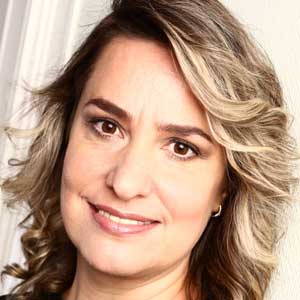
Ekaterina Larsson (SW)
Ekaterina Larsson is a Digital Communications freelancer with passion for new technologies, sustainability, CSR and writing of course. Her professional life includes communications and marketing for UNHCR, Bain & Company, Becker Acroma, and recently Impact Hub Stockholm. She has lived and worked in Bulgaria, Switzerland, US, UK and now Sweden. Driven by curiosity and the desire to help people she hopes to help make this world a better place through constructive dialogue and encouraging common efforts.
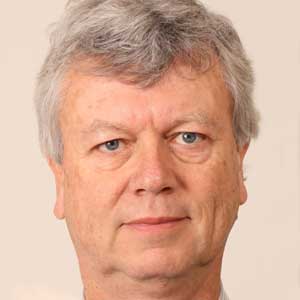
Fritz Caspers (DE)
Fritz Caspers (M’76; SM’91) received the Dipl. Ing in electrical engineering from the technical University Aachen (RWTH Aachen) in 1975 and the Dr. Ing (with honors) from Bochum University in 1982. Since 1982 he is at CERN, started as a “CERN fellow” working since then in different fields of RF-technology, stochastic beam cooling, EMC, electron could and material measurements. He is presently senior scientific staff and author or coauthor of about 350 papers and 30 patents or patent applications.
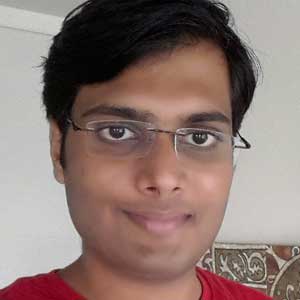
Mukul Agarwal (IN)
Mukul is pursuing his Bachelor of Technology in Electrical Engineering at SVNIT, Surat. He has keen interest in control systems and embedded programming and is focused on their application in robotics. He recently finished his internship of two months working on the flight control of a Quadcopter at IIST, Trivandrum. Now he is working on implementing it on a ARM-Cortex-M4 based microcontroller. He is eager to learn new things and wants to explore the world. His email address is mukul7794@hotmail.com.
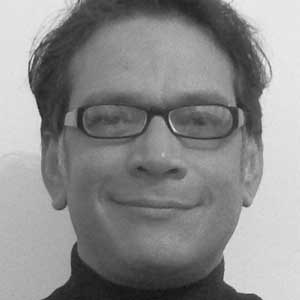
Jose-Luis Preza (SV)
José Luis is a software professional currently working at the Central Information Systems of the University of Vienna. He was born and raised in El Salvador, where due to the civil war, he spent his teenage years on the streets. Besides his day job, José Luis is a columnist for several media outlets, a composer and guitarist, and a cooking instructor. He can still breakdance and likes climbing jocote trees. His music can be heard on his site www.Preza.org
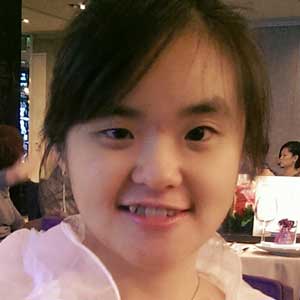
Kitty Liao (TW)
Kitty has degrees in both physics and electronic engineering. She has a passion for innovation and building things. Kitty worked at CERN for 3 years on superconducting cavity diagnostics for future colliders which form part of the upgrade of the LHC injector chain. She designed and developed an ‘Octopus temperature mapping system’ and was invited to talk about it at CERN’s BE-KS first Innovation Day. Kitty also enjoys traveling, designing and making dresses, cooking, skiing and swimming. www.kittyliao.com

Nicholas Kee (JM)
Nicholas, from Jamaica, has an innate passion for innovation. He started computer programming at the age of twelve. From then, he has been creating games, health related systems and applications for VR and AR technologies. He is also very invested in scientific research creating renewable sources of energy, namely a version of an organic solar cell model (artificial photosynthesis). He’s now running a data and risk analysis startup: Riskkee. You can contact him here: nicholaskkee@hotmail.com.
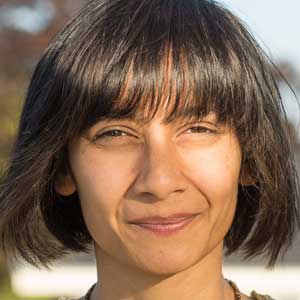
Sujata Majumdar (UK)
Sujata is an artist with a background in physics, photography, and ICT. She has been residing in the Netherlands since 2001, where she also works on implementing a new electronic health record at a teaching hospital. In 2014 she was awarded an ICT-Art Connect residency by the EC, for which she co-created the project Desirable Dossiers, with Healthcare ICT experts, patients and practitioners. She wanted to give people a feel for their medical data, indirectly empowering them in the choices they have in healthcare.
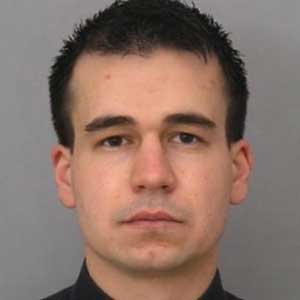
Zdravko Kinanev (BG)
Zdravko holds master’s degree in construction of buildings and facilities from University of Architecture, Civil engineering and Geodesy – Sofia. Over the last five years he was engaged in design and construction of large scale photovoltaics power plants in Bulgaria, Macedonia and Romania. He loves to design things and makes them happen, to improve them, to see them in his dreams.
Team: Breaking Good
Coaches: Oliver Keller and SP Mohanty
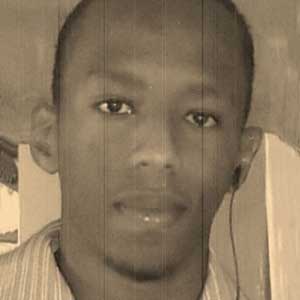
Alois Mbutura (KE)
Alois is a Student studying Electrical Engineering in Nairobi and 3D printing enthusiast by inspiration. He is currently helping build commercial 3D low-cost printers from E-waste with his friends at AB3D, a Kenyan startup. He is also involved in the maternal newborn and child healthcare project that is locally developing medical devices in Kenya that meet medical standards at low cost at Fablab Nairobi. During his free time he enjoys everything linux, programming microcontrollers and teaching kids.
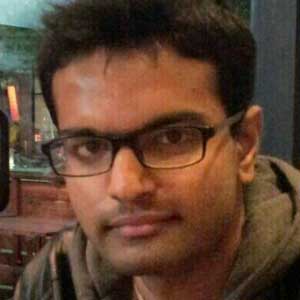
Amit Navindgi (IN)
Amit is a developer, tech enthusiast and a football fanatic. He is currently pursuing Masters in Computer Science at University of Southern California in Los Angeles. He likes to explore domains and has worked on projects in Artificial Intelligence, Robotics, Wireless Networks and Big Data analytics. He is passionate about developing open source solutions with real social impact. He also spends time tutoring high school students in Los Angeles for USA Computing Olympiad while enjoying the beaches of LA in his free time.
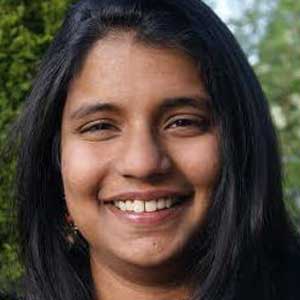
Ananya Cleetus (US)
Ananya (@ananyacleetus) is an incoming Computer Science major at the University of Illinois at Urbana-Champaign. She is interested in assistive technology, and developed a 3D printed robotic prosthetic hand for leprosy victims in India, which she presented at the 2014 White House Science Fair and World Maker Faire. In addition to her work with robotics, she is the founder of Magikstra (magikstra.com), a social network that helps high school students find mentors in universities and businesses.
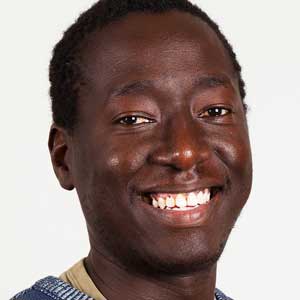
Diop ElHadji Assane (SN/CH)
Assane is a Pharmacist and is involved with colleagues of Dakar University in quality control of Pharmaceutical drugs on the Senegalese and west African market. He is doing now a PhD on Interactions between TB drugs and Plants, and try to develop reliable technics in this way. He participate on information’s support about immigration to Europe for people from west Africa and has a big interest on the validation of traditional medicines.
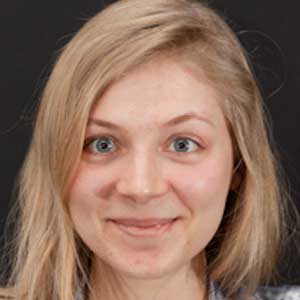
Emilie Reginato (CH)
Emilie is a lab technician and since 2012 at the University of Geneva working on CE. Her first mission with Pharmelp and the Geneva University was regarding the ECB Last Spring in Madagascar. Before she worked on multi-MS and NMR platform at NRC (Nestlé Research Center). She has done other missions with Greenpeace, Pronatura and Seasheperd in Eastern Europe and Switzerland. She is a sport addict and bike junkie.

Julie Schappler (CH)
Julie is pharmacist and holds a PhD from the University of Geneva. She is currently senior lecturer and also research associate in the group of Pharmaceutical and Biomedical Analysis. She heads the unit of capillary electrophoresis, which works on developing methods to improve analysis performance while reducing analysis time and cost. Applications range from small pharmaceutical compounds and their metabolites in biofluids, to biomolecules. A special focus is given to the development of strategies readily applicable to transitional countries to fight against counterfeit medicines and perform sub-standard drugs quality control.
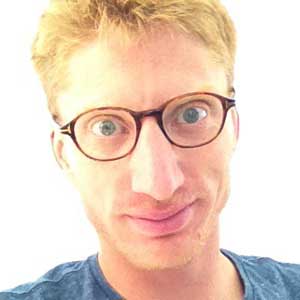
Luc Henry (CH)
Luc Henry is the Managing Editor of European science magazine Technologist and a member of the Lift editorial team. He spent the past ten years exploring the life sciences in various places around Europe and was a regular contributor to The Conversation. He recently returned to Switzerland and co-founded the DIY biology initiative Hackuarium. Luc holds a PhD in chemical biology from the University of Oxford. He has a particular interest in cutting edge technologies and their impact on society.

Meghana Sharafudeen (IN)
4 days a week Meghana is an associate program officer working on global health, climate change, and food security at the World Intellectual Property Organization in Geneva. She is passionate about arts and education as instruments of change and is an insatiably curious wearer of many hats – lawyer, access to medicines specialist, project manager, communicator, artist, musician. Her other 3 days are spent on side projects, pottering around a house overflowing with plants and animals.
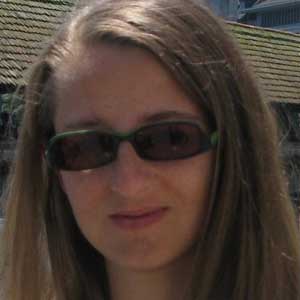
Monika Cichocka (PL)
Monika graduated in biomedical engineering at the University of Science and Technology in Cracow. She specialized in biomedical informatics. For two years she has been a researcher at the Medical College Jagiellonian University. She works with magnetic resonance – especially she is focused on spectroscopic examinations.
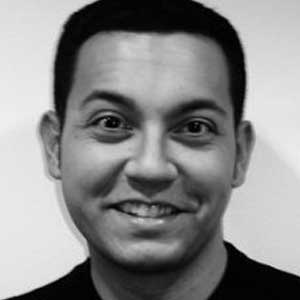
Roice Fulton (US)
Roice is an infectious disease epidemiologist and analyst at Gavi, the Vaccine Alliance in Geneva. He brings ten years of experience in the life science, public health, and education sectors – with past endeavors ranging from HIV technology research in Zambia, to disaster relief and wildfire fighting in the US, to the leadership of a small educational foundation in North Carolina. Drawing on extensive experience in fundraising and advocacy, Roice aims to engage the broader scientific and technical community in developing sustainable innovations that improve health outcomes.
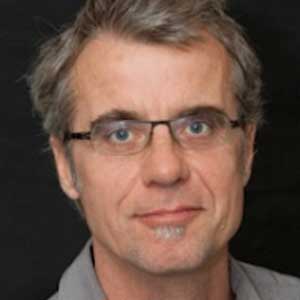
Serge Rudaz (CH)
Serge studied pharmacy and obtained his PhD in 1997. He was promoted Associate Professor at the University of Geneva in 2012. He is research group leader and member of the management Board of the Swiss Centre for Applied Human Toxicology (SCAHT) Fundation. He is also vice-president of the Competence Center in Chemical and Toxicological Analysis (ccCTA). He published numerous scientific papers (>220). He is currently interested in toxicological analysis, including metabolism, as well as pharmaceutical and counterfeits medicines.

Sophie Redford (UK)
Sophie is an experimental physicist working at CERN. She holds a DPhil from the University of Oxford for her work on the LHCb experiment at the LHC. Now she designs detectors for future linear colliders by simulating particle collisions and developing hardware prototypes. She enjoys data-driven analysis and finding the minimal solution to problems. In her free time Sophie likes to swim, bike and run. She loves hiking in the Lake District. The most challenging thing she ever did was a 5k open water swim.
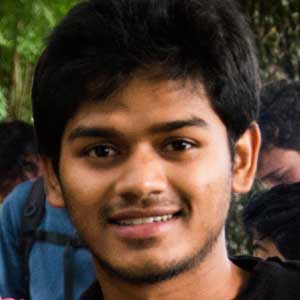
SP Mohanty (IN)
SP Mohanty is a Grad student at IIIT-Hyderabad.An open source enthusiast and a machine learning freak, Mohanty has been associated with Google Summer of Code for the past 3 years.He has previously worked with the ROOT team at CERN,and is currently associated with CERN as a Visiting Scientist.He was the winner of the CERN Webfest in 2013 and the coordinator in 2014.He likes building cool stuff,taking awesome photographs,writing computer games,playing his old dusty guitar and composing silly songs.
Team: Come-on-Baby!
Coaches: Tuuli Utriainen, Marthe Dehli, Pia Massatsch, Sophie Lonchampt and Matthieu Gani
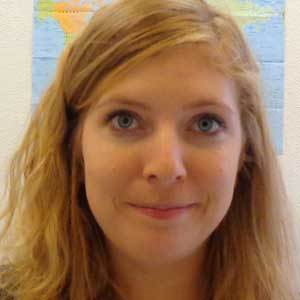
Delphine Amstutz (CH)
As a dietician (B. Sc. in Nutrition and dietetics, Geneva, 2011), Delphine has gained experience in clinical nutrition and nutritional education related to obesity, diabetes, cardiovascular diseases and malnutrition. She is currently working at the University Hospitals of Geneva with migrants and socioeconomically disadvantaged people. Passionate about global health, particularly to try to reduce health inequities, she is eager to think about it with people from different backgrounds.

Ellen De Vos (BE)
Ellen De Vos (31) is both a master in Industrial Design and Fine Arts. She lives and works in Belgium. She is mostly intriged by human behaviour and interactions between people. When she´s not working for the University of Applied Science Howest (Kortrijk, Belgium), she´s observing with or without her photocamera. Or she reflects about the future. She even used to do this professionaly at Trendwolves. She´s a food lover and likes traveling.
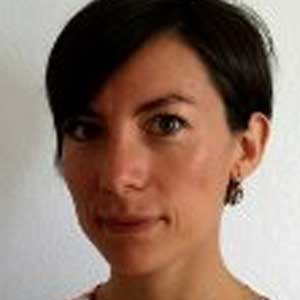
Federica Ferraro (IT)
Federica is a positive-thinker and passionate Biomedical Engineer coming from the sunny southern Italy. She had a classical studies education and then graduated at the engineering University of Naples, developing so cross functional competences. In Italy she worked as a researcher for development of a medical web application and decided to follow her team in Lausanne, where she lives for 2 years. Her curiosity and avidity of knowledge pushed Federica to challenge herself: she is now an IT consultant in West-Switzerland, leading a small team in an international and multicultural environment.
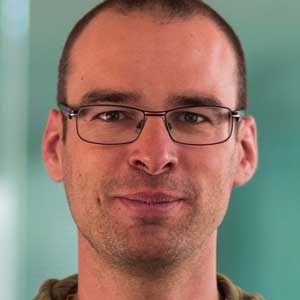
Matthieu Gani (CH)
Matthieu is a scientific collaborator at EPFLís cooperation and Development Center (CODEV). After completing an M.Sc. in Electrical Engineering, he worked on cochlear implants at the Geneva University Hospital, developing research interfaces and conducting tests with patients. He was then employed as a social worker and assistant manager at the Soup Kitchen in Lausanne, Switzerland, providing free meals and guidance to people in need. He joined CODEVís EssentialTech team in 2013 to manage the GlobalNeonat project.
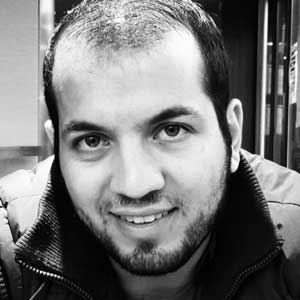
Mohammad Rasool Vaziri Sereshk (IR)
Mohammad is a Mechanical Engineer with MSc degree from Politecnico di Torino in Italy. He is currently working as design and development engineer for TERA Foundation at CERN, in which he designs the mechanical layout for novel hadrontherapy gantries and develops different solutions used in cancer treatment. He also has a strong interest in nanotechnology science and its implementation to biomedical and energy fields. His desire to improve public welfare by focusing on community collaboration has led him to humanitarian projects where he employs his expertise in engineering and healthcare technologies for boosting innovative ideas.
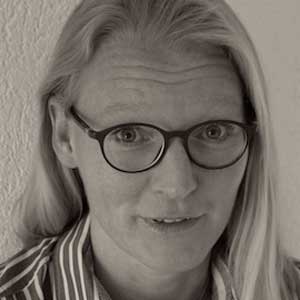
Pia Massatsch (SE)
Physicist and biomedical engineer, cook and kitchen workshop leader, it’s when things get interdisciplinary and multicultural that Pia enjoys them the most. After a PhD in biomedical optics she chose to focalise on gastronomy for several years and just recently returned to Scientifics. What brought her back was the feeling that all over the world great research was going on, combined with the obvious lack of application even of the most basic discoveries in a major part of the world. She is currently project manager at the EssentialMed foundation.
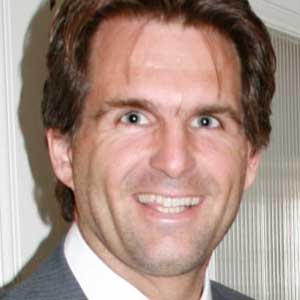
Riccardo Pfister
PD Dr. R. Pfister PhD is head of Neonatology at the University Hospitals Geneva and Private Docent at Geneva University. He is acting president of the Swiss Society for Neonatology. His research focus is perinatal adaptation and resuscitation, thermoregulation and developmental care with numerous publications in international journals. Dr. Pfister has more than 15 years of experience in cooperation programs for emerging countries, teaching programs on site in addition to education in his busy level III Neonatal Intensive Care Unit in Geneva.
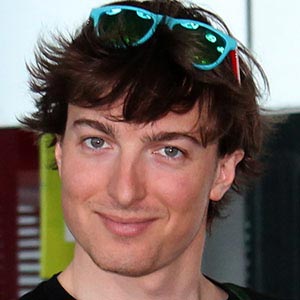
Romain Bazile (FR)
Building engineer by training, but passionate about subjects such as electronics, design, astronomy, science and many more, Romain Bazile has multiple hats to play with. Since his involvement in the Team Rhone Alpes with their house Canopea during the Solar Decathlon Europe 2012 (which the team won), he believes in learning by doing and try to tackle every challenge he finds on his path. In his eyes, only multidisciplinary teams can nowadays solve the biggest problems we face on our planet.

Sharon Lin (US)
Sharon is a student, software engineer, and advocate for technology education. She conducts thermochemical nanoelectronics research at the New York University Polytechnic School of Engineering, and is also involved with the National Center for Women and Information Technology. Her work experience includes open source development, graphic design, and hardware programming. She enjoys prototyping software for robotics and Arduino development in her spare time.
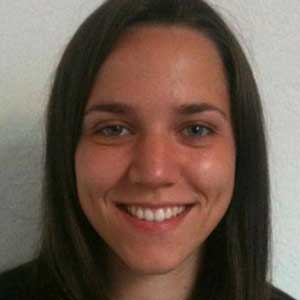
Sophie Lonchampt (CH)
Sophie graduated in life sciences and technology from the Swiss Federal Institute of Technology. She is very interested in health issues in developing countries and has worked on several projects in Africa. She is now project manager for the GlobalNeoNat project, aiming to develop an essential incubator for developing countries.
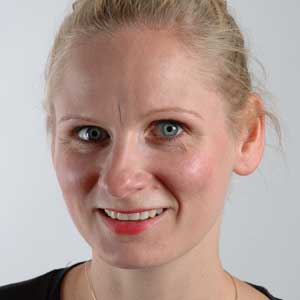
Therese Sjursen (NO)
Therese is a particle physicist with a PhD on data analysis from the ATLAS experiment at CERN. In her current position as associate professor she is teaching mathematics to engineer students, and has recently accepted a job offer to work as an analyst at Bergen University hospital. She is passionate about science, collaboration and interdisciplinary. Being curious by nature and eager to learn new things, Therese’s motivation for participating on THE Port is to get the experience, inspiration and the chance to build a network for future undertakings.
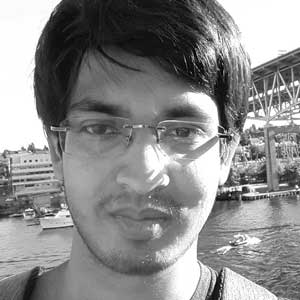
Utkarsh Garg (IN)
Utkarsh is a data analysis freak. He loves taking any data and turning it into knowledge. He is an undergraduate in computer science at the Georgia Institute of Technology and loves tackling the unsolvable. He has worked on projects in the fields of finance, sustainability, robotics, artificial intelligence, early childhood development, medicine, education and disaster relief. He loves working on multidisciplinary teams, taking ideas from one sector and applying them to other domains.
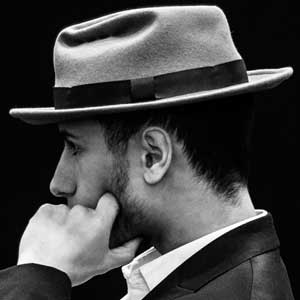
Zakaria Abushima (UK)
Zakaria is a System Architect Intern at Micron, a second year Computer Science entrepreneur, course representative, Student Ambassador, Science and Engineering Ambassador, Futures Programme Ambassador at Manchester Metropolitan University and United Kingdom STEM Ambassador at STEMNET. “I am a hard-worker that believes impossible is saying I’m possible”. He enjoys exercising sports such as Taekwondo and mountain biking. He spends every weekend in a Hackathon. He enjosy reading Japanese Manga.
Team: Blast Busters
Coaches: Tomoko Muranaka and Brice Copy
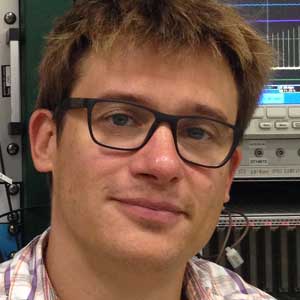
Bertrand Lefort (FR)
Bertrand has a University Technology’s Diploma in industrial computing and electronic. He also studied a University degree in Network, systems and multimedia. He first works at CNRS on Adaptive Optics for the ESO Very Large Telescopes located in Chile before moving out to Canaries Islands to work on the world biggest telescope (GTC) as a Senior real-time engineer to design and implement the active-optic control system of the primary mirror. Bertrand also benefit of experience in the private sector for being two time entrepreneur: he founded a company offering scientific and engineering consultancy applied to gastronomy that received the Madrid Fusion Technology Innovation Award 2010. Four years ago he has join CERN Beam Department where he is taking care of the Antimatter-Factory : an anti-protons decelerator used to produce and study anti-hydrogen.
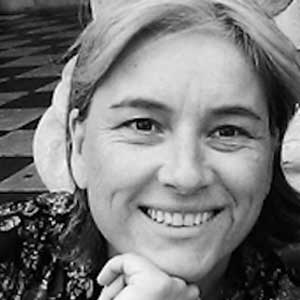
Biliana Vassileva (BG)
Biliana holds MAs in Sociology and Leading Innovation & Change. She has been working in the non-for-profit sector for the last 15 years, focusing on education, culture, women and children. Her research focuses on the applied dimensions of soft tools for organizational change and creativity enhancement. In the last two years, Biliana has been mentoring innovation summits and hackatons. At present, she is working on the contingent interplay between wisdom & education.
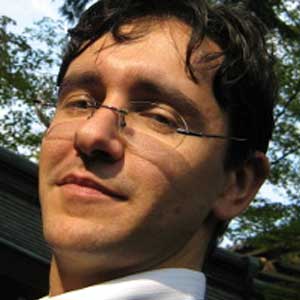
Brice Copy (FR)
Brice has been part of the CERN Engineering Department since 2009, where he has been working on cybersecurity research and middleware development for the LHC and general CERN infrastructure. Prior to this, he developed the project management tools used at CERN for the construction of the LHC and other large European scientific projects. Software engineer by training but dabbling in hardware by necessity (and a strong personal interest), his involvement with THE Port stems from the belief that simple ideas executed well can change the daily lives of many for the best.

Christina Wille (DE)
Christina was educated in Cambridge (MPhil; International Relations) and Durham (BA; Modern History). She is director and co-founder of Insecurity Insight, improving data collection and monitoring on violence and its consequences for the humanitarian and development agenda. Christina has fifteen years of research experience covering weapons use and the impact of insecurity on humanitarian aid. She has carried out fieldwork in East African and Central Asian countries while senior researcher at the Small Arms Survey and for donor agencies and think tanks in the capacity of an independent consultant. Her particular expertise is in the field of data collection and the development of monitoring systems on the impact of insecurity on people and services in developing and conflict affected countries.
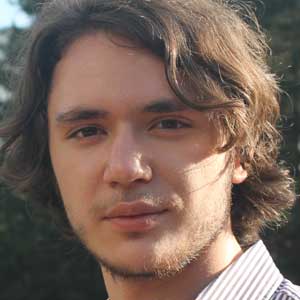
Kerem Gunes (TR)
Kerem is a senior student of Electrical and Electronics Engineering at Bilkent University in Turkey. He’s an experienced hardware and software developer, a cybersecurity enthusiast and an avid traveler. As an undergraduate researcher in artificial intelligence, he’s currently developing a 3D visual simulation framework for testing game theory and reinforcement learning based models of human pilot flight behaviour. His work paves the way for realistic simulation-based assessments of the consequences of the inclusion of autonomous UAVs alongside conventional piloted aircraft.

Kevin Koh (SG)
Kevin I. Koh is a specialist in international human rights and sustainable development which he is actively seeking to apply in technology-based social innovation. Currently working at a major international human rights organisation, his areas of expertise include: children’s rights; women’s rights; the inter-dynamics between international economic law and policy with human rights; and, migration and human rights. Kevin was also previously working on innovative approaches for reconciling world trade policy and human rights as Senior Lecturer and Researcher at the Transnational Economic Law Research Centre in Germany. Kevin has a Bachelor of Laws from King’s College London, a Master of International Economic Law from the Institute for Economic Law in Germany, and is currently pursuing his PhD in international human rights law concurrent to his current occupation. He speaks English, Chinese, and German fluently, and has intermediate proficiency in French, Spanish and Swedish. In a personal capacity, Kevin is also doing pro-bono work on social entrepreneurship and innovation as part of the “Collaborate for Social Impact” initiative of the Graduate Institute of International and Development Studies in Geneva. He also provides policy advice for the Webster Humanitarian Association, and is participating in the founding of a non-profit start-up for human rights advocacy through the fine arts.

Peter Klipfel (US)
Peter is currently a founding partner and lead technical consultant at Archethought. He has an BS in Computer Science from the University of Colorado. He has worked with national laboratories, government transportation departments, and companies of all sizes to solve problems ranging from weather modeling to crop disease recognition to educational travel.
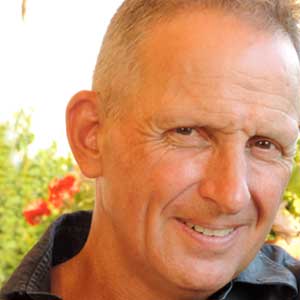
Robin Coupland (UK)
Robin Coupland is a former field surgeon and medical adviser for the International Committee of the Red Cross (ICRC). He trained in Cambridge, UK. Much of his professional career has involved developing and publishing a health-oriented approach to a variety of issues relating to the design and use of weapons. He has developed data-gathering systems in relation to issues such as security of health care in armed conflicts and the impact of use of explosive weapons in populated areas.

Robin Scheibler (CH)
Robin is a PhD student focusing on signal processing for speech and acoustics. Before that he was an engineer at NEC Corporation in Japan and IBM Research in Zürich. He was involved in the Safecast project designing mobile radiation detectors to monitor the fallout from the Fukushima Dai-Ichi nuclear accident from 2011. More recently, Robin is participating in the Bio-Design for the Real-World project whose purpose is to create open-source devices for water quality monitoring.
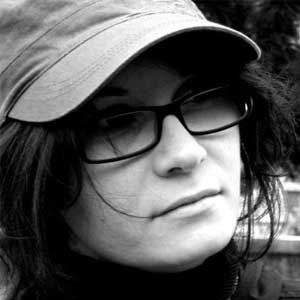
Silvia Tomanin (IT)
Silvia is a web engineer with experience in web development, infrastructure and project management. Her work focuses mainly on websites (re)design, migration and continuous integration. Silvia got her MSc in Computer Engineering from the University of Ferrara (Italy) in 2009. Then she moved to Geneva: she has been a fellow at CERN until the end of 2013, where she worked on the redesign on the CERN public website. She loves post–its. You can find her on Twitter at @thelucea.
Team: Shelter X
Coaches: Andrey Loginov and Hugo Day
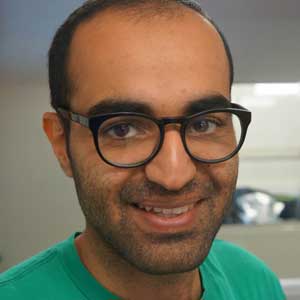
Amirhossein Imani (IR)
After getting my degree in mechanical engineering, I worked in the field of Energy Efficiency and renewable. Later on, I decided to get into the field of international development with the focus of inclusionary policy making and gender issues in the University of Edinburgh, UK. Currently I work as a consultant in the Office of Policy and Strategy of the Organisation for the Prohibition of Chemical Weapons (OPCW) in The Hague where I do data-driven policy analysis. I am passionate about technology and advocates use of new media for sustainable social and environmental change.

Andrea Limjoco (PH)
Andrea is an art director, visual designer and illustrator currently based in Stockholm. She’s started her design career in Singapore. Her love for creating things has led her to Spotify – where she designs experiences for offline, online and everything in between.
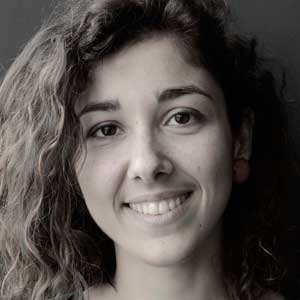
Charikleia “Haris” Makedonopoulou (GR)

Matt Thomas (US)
Matt is an architect, artist and the founder of Studio Taos, a design and research firm based in Taos, New Mexico. Matt’s work focuses on strengthening community engagement through creative programming that is steeped in social-cultural expressions, local collaborations and open conversations. His projects include The Paseo, an outdoor art festival, the ToolBox – A Maker Space, and The Food & Shelter Lab that explores the role of food and shelter in contemporary society. www.studiotaos.com.
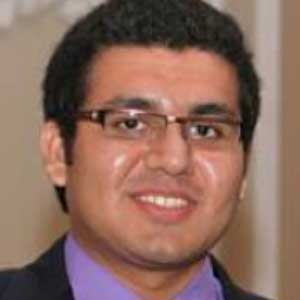
Mohammad Moosajee (PK)
Mohammad Moosajee born in Karachi, Pakistan; living in Houston, USA. Currently working as a Physics Lab Assistant at Houston Community College – Houston, Texas. I am a Salzburg Global Fellow (Salzburg Global Seminar). I served as a Mentor and a Student Ambassador at my college. Received Associates in Science Degree and will be starting junior year, this fall semester, in Mechanical Engineering at Texas Tech University – Lubbock, Texas. I am learning programming on Matlab and pairing with Arduino and Android phone to make basic electronics. Passion for research in Physics, Meteorology and Renewable/Alternate Energy sources and applying knowledge acquired to improve the life of underprivileged communities.
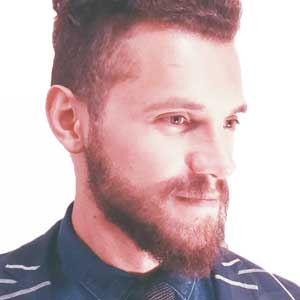
Onur Aydogan (TR)
Onur is a research fellow at the Middle East Technical University (METU) – Department of Physics, with an entrepreneurial passion. He will be involved in AMS-02 Dark Matter Project at CERN, in the last two weeks of August 2015. With a bachelor degree in Physics, he is currently studying his Masters in Atomic and Molecular Physics. He is also concurrently pursuing his second degree in Business Management. His passion led him to start up his first company, which implements activities for tourism sector, in 2008 at the age of 19. He gained managerial experience, whilst working as a logistics manager for Turkey’s High Speed Railway Project. Furthermore, he co-founded a trade company and delegated due to educational commitments. Onur is versatile, “life-time student”. He was engaged in music and modeling during his first degree. However, his heart lies with the greater good of our planet Earth. He will continue to work for and contribute towards this sacred cause, with his knowledge, skills and experiences. Finally, Onur feels inspired to create implementable, innovative and sustainable scientific inventions and complementary business solutions in harmony with Planet Earth and it’s biological assets.
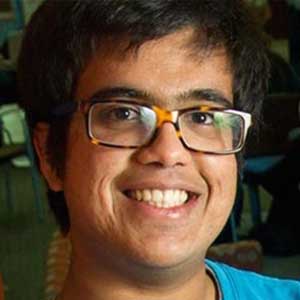
Shehzad Lokhandwalla (IN)
Shehzad Lokhandwalla recently graduated from the University of California, Davis, with a degree in computer science. At UC Davis, Shehzad was elected senator for the student government, and also served as the student assistant to Chancellor Linda Katehi. Shehzad is passionate about community service, volunteering, education, technology, and humanitarian affairs. Currently interning at UN Office of Coordination for Humanitarian Affairs in Geneva, Shehzad hopes to start his own education non-profit in India. In his free time, Shehzad indulges in photography, philately, and watching Netflix. Shehzad can be reached at: sslokhandwalla@ucdavis.edu.
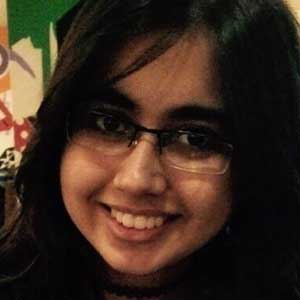
Vanya Jauhal (IN)
Vanya is an undergraduate student in her final year at IIIT-H, India. She haS recently interned in Google, Sydney office. her research work involves integrating AI with human-computer interfaces. In her spare time, she like to read manga, and basically any comics she can lay her hands on.
Team: CosmicPi
The PierX2 topic will be organized and run by the CERN Robotics club and will be supported by THE Port association.
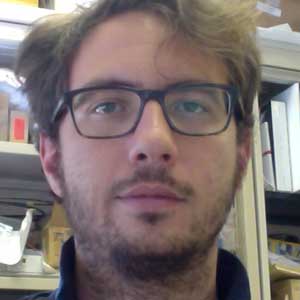
Cosimo Cantini (IT)
Cosimo is a curious Electronics Engineer at ETHZ and working on Detector Development for Neutrino Physics and Dark Matter search at CERN. He comes from Empoli (Firenze) where he had his studies on Humanities to move then to Pisa where he studied Electronics Engineering and got amazed by Technology, Science, Physics, Chemistry… He started off his research activity with a bachelor thesis on a strange sensor based on porous silicon to move on with gaseous particles detectors at CERN. Now working hard for the next generation Neutrino detectors and … for Space!
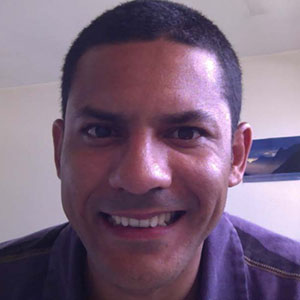
Etam Noah (UK)
Etam is a researcher at the University of Geneva working on neutrino detectors. He has a general interest in anything to do with particles interacting with matter. He worked on the design and commissioning of the CMS tracker. He is keen to bring bits of giant detectors to a wider audience, especially detector prototypes with educational value. When possible, he plays volleyball, surely the coolest sport on grass, sand or indoors.
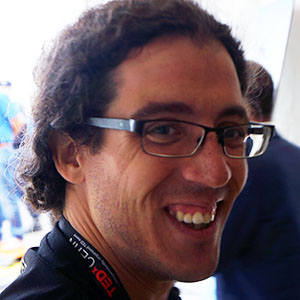
Hugo Day (UK)
Hugo is a applied physicist at CERN, working on fast pulsed electromagnets. He enjoys hanging from/on top of rocks, finding ways to make people think differently (or indeed at all) about science and technology, playing games and bodging things together.
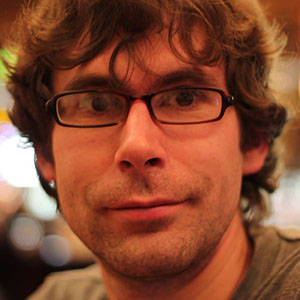
James Devine (UK)
James Devine is an Electrical Engineer currently working at CERN. He likes to make cool things and has experience in launching balloons to the edge of space and building robotic arms based on Arduino. He has professional experience designing electrical systems for scientific experiments, data centres, schools and laboratories. In his spare time he likes to programme and prototype software in Processing and Python.
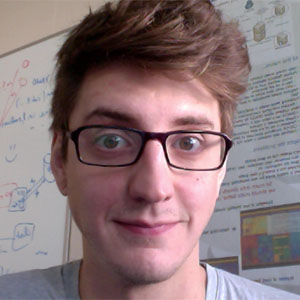
Justin Salmon (UK)
Justin is a computer scientist currently at CERN. He has previously worked there on massive distributed storage systems for LHC physics experiments, and now works as a Fellow developing high-availability monitoring applications for technical infrastructure. He loves hacking in Python and is an open source enthusiast.
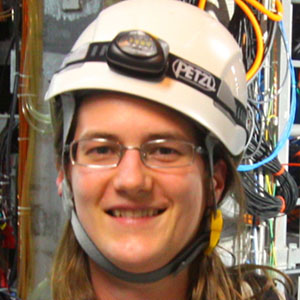
Laurel Coffey (US)
Laurel Coffey is a physics PhD student at Brandeis University currently working on ATLAS. She has done searches for a lepton flavor violating particle, worked on the optical alignment system of the Muon Spectrometer, and worked in microscopy at the Columbia University Cancer Center. She hikes the mountains in all seasons and weather conditions, travels and takes photos.
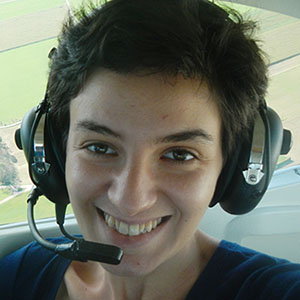
Leïla Haegel (FR)
Leïla Haegel is a PhD student in neutrino physics at the University of Geneva. She settled near CERN after studying and getting research experience in material, particle accelerator and black hole physics between France, Ireland and Spain. The hackaton is her new challenge after learning diving and enjoying her first flight.
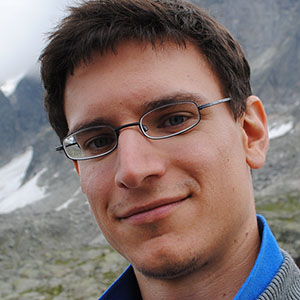
Martin Hellmich (DE)
Martin is a computer scientists currently working at CERN on large-scale distributed storage systems. He recently fell in love with the Raspberry Pi and cannot start a project without involving one. He has experience building efficient systems in C++ and Python.
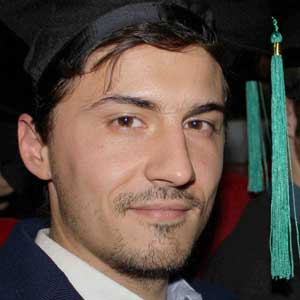
Ruslan Asfandiyarov (RU)
Ruslan is a researcher at University of Geneva with wide experience in particle physics. He contributed to the discovery of the Higgs Boson when he worked in ATLAS Collaboration at CERN. And he constructed a detector for a muon accelerator project during his PhD. He is now working on cosmic ray detector to be launched into space to look for dark matter.
Our team 2015
Without the enthusiastic voluntary work of our Organizing Team, Advisory Board and Executive Committee we could not work professionally – a big Thank You and it is fantastic to work with you.
Executive committee 2015
-

Ines Knäpper
President
Project Manager with strong background in Intercultural Management, Sales and Customer Service.
-

Branislav Ristic
Treasurer
CERNDoctoral student working on silicon sensor technologies for the ATLAS experiment.
-
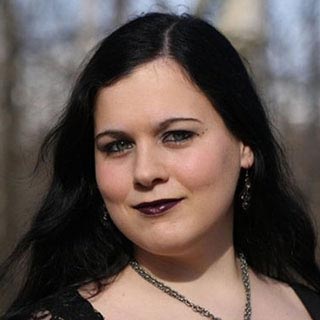
Karola Dette
Secretary
CERNDoctoral student working on silicon sensor upgrade developments for the ATLAS experiment.
Organizing team 2015
-

Agnes Jakab
Member
THE PortInternational HR & recruitment professional. Communication and volunteering enthusiast.
-
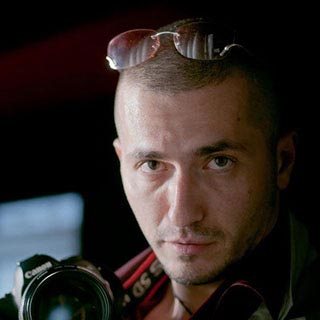
Andrey Loginov
Member
YalePhysicist working on Transition Radiation Tracker and top(-pair) + Higgs data analyses.
-
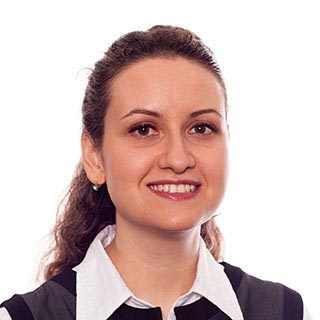
Bilge Demirköz
Member
METUAssociate Professor at METU working on the AMS-02 experiment.
-
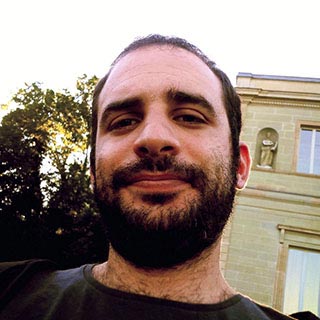
Bruno Silva De Sousa
Member
CERNIT engineer, service manager at CERN.
-

Cecile Lapoire
Founding Member
CERNPhysicist working on the ATLAS pixel detector, curious about art, human beings, life, universe, etc.
-
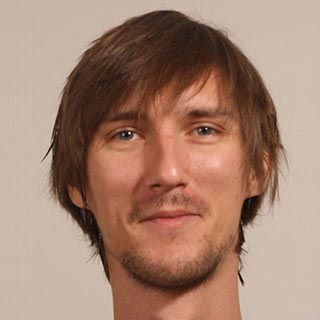
Clement Helsens
Member
CERNPhysicist still searching for new physics in the top-quark sector in the ATLAS experiment.
-
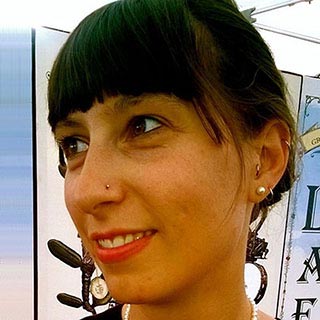
Cristina Olivotto
Member
sterrenLABFounder of Sterrenlab, working in the field of science communication and education in formal and informal environments.
-

Daniel Dobos
Founding Member
CERNPhysicist working on Silicon & Diamond detectors development, integration and operation.
-
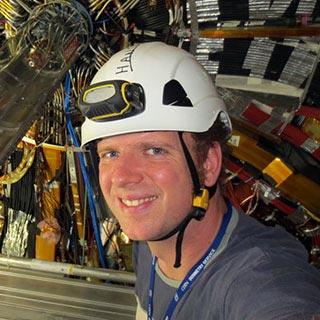
Hansdieter Schweiger
Member
CERNMechanical Engineer working on Pixel detector and services upgrade for the ATLAS experiment.
-

Iulia Pascu
Member
CERNProject Manager, event organiser at CERN.
-

Jens Dopke
Founding Member
RALPhysicist working on silicon detector construction, calibration and operation, big fan of electronics.
-
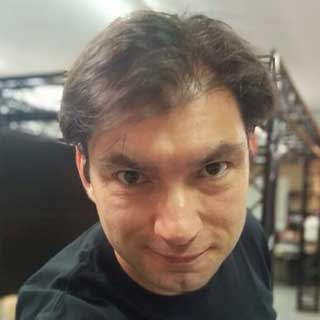
Joao Pequenao
Member
CERNChief Troublemaker at CERN Media Lab.
-

Juliet Primo
Member
Project consultant, communication and outreach.
-

Joona Kurikka
Founding Member
Aalto UniversityDoctoral student, Cooperation Associate at IdeaSquare@CERN.
-

Karolos Potamianos
Founding Member
Berkeley LabPhysicist and engineer working on silicon detectors, currently on the data acquisition for the ATLAS Pixel Detector, and data analysis.
-
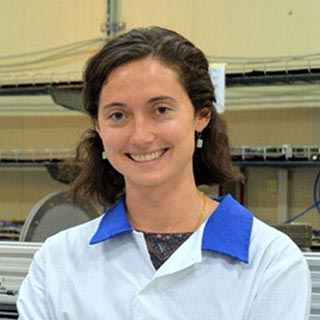
Laura Jeanty
Founding Member
Berkeley LabPhysicist working on data acquisition for the ATLAS Pixel detector with expertise in detector monitoring and data analysis.
-
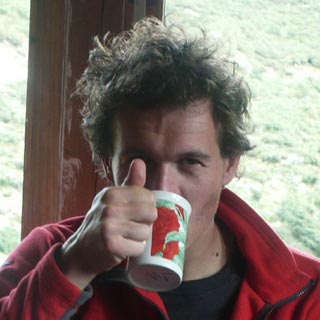
Leonardo Milano
Member
CERNPhysicist working in the ALICE experiment.
-
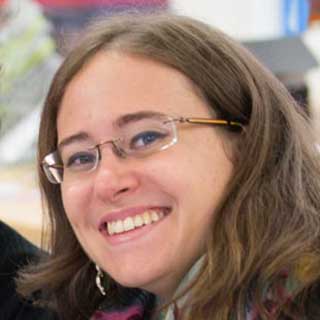
Luisa Meneghetti
Member
IDMCCommunity manager and responsible for THE Port newsletter.
-
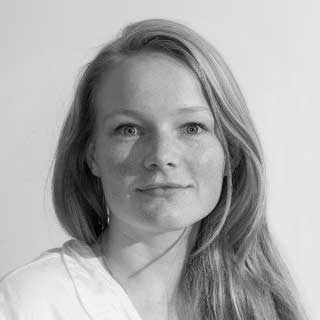
Marthe Dehli
Member
CERNMaster’s student in entrepreneurship and business development doing a thesis on THE Port and start-ups emerging from the hackathon.
-

Michael Kagan
Founding Member
SLACExpert in large-scale data analysis, pattern recognition, and ATLAS pixel detector quality assurance.
-

Michael Leyton
Founding Member
UTD -
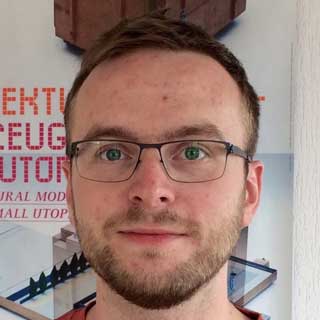
Oliver Keller
Member
-
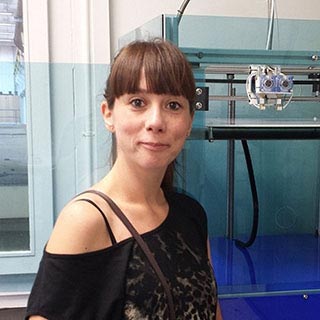
Patricia Montalvo
Member
I work as administrative manager. I love the idea of improving the life of those less favoured by using technology.
-

Pierre Freyermuth
Member
CERNAuthentic Proton-breeder, Electronic technician and Java developer.
-

Ruben Fernandez Morcillo
Founding Member
CERNMechanical technician with knowledge in rapid prototyping machinery. Currently working as safety officer.
-
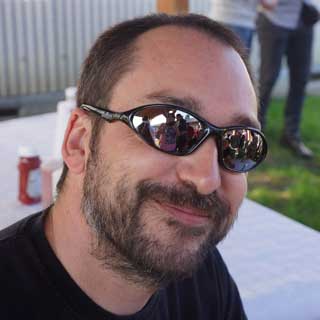
Sylvain Kaufmann
Member
CERNProcess engineer in the electronics assembly workshop@CERN.
-
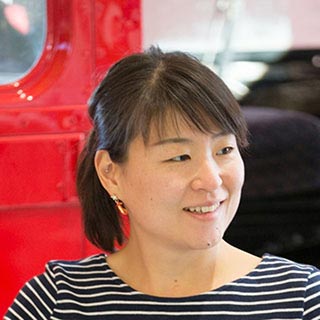
Tomoko Muranaka
Technical Project Manager
CERNPhysicist working on material characterisations for future accelerator developments.
-
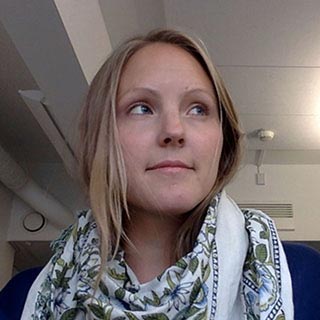
Tuuli Utriainen
Founding Member
Aalto UniversityPiloting activities at IdeaSquare@CERN.
-

Vetle Nilsen
Member
CERNWorking in the CERN Knowledge Transfer Group on topics around innovation and entrepreneurship.
Hugo Day • Jörg Stelzer • Marylin Marx • Oliver Keller • Stephan Petit
Knowledge Transfer
Entrepreneurship Coach 2015

Felix Stähli (CH)
Passionate about social entrepreneurship and inspired by the idea of leveraging the potential of Geneva-based International Organizations for social innovation, Felix is one of four co-founders of Impact Hub Geneva. He leads internal organization, external space rental and partnerships. Alongside to his work at the IH GVA, Felix supports Just Innovate and the THE Port’s Humanitarian Hackathons as advisory board member. Felix holds a Master’s degree in International Relations from the Graduate Institute in Geneva. He worked as an assistant correspondent of an international newspaper covering the UN in Geneva and “La Genève internationale”, before joining a leading financial information company.
It is part of a global grassroots network of over 70 connected communities/spaces that enable collaborative ventures. Impact Hubs unite people and organizations from every profession, background and culture with imagination and drive to pursue enterprising ideas for the world. Located at the heart of Geneva (right behind Cornavin train station), Impact Hub Geneva offers various incubation services to its members, as well as an inspiring space to (co-) work, hold meetings, workshops and special events.
Advisory board 2015
Barbara Warmbein • DESY • Linear Collider communication and LHC communication for Germany
Ben Segal • Honorary CERN-IT staff member • Citizen Web Science projects, seminars and hackfests within and outside CERN
David Galbraith • Tech entrepreneur, former architect, now designer of digital things – including RSS, Yelp, ‘pinning’
Erik van der Bij • CERN • Departmental Knowledge Transfer Coordinator and Open Hardware advocate
Felix Stähli • Impact Hub Geneva • Internal Organization, External Space Rental and Partnerships
Francois Grey • Université de Genève and Citizen Cyberscience Centre • Associate Professor at the University of Geneva
Neal Hartman • Berkeley Lab • Director and President at CinéGlobe Film Festival
Robin M. Coupland • former ICRC • Field Surgeon and Medical Adviser
Sascha Schmeling • CERN • Head of Teacher Programmes and Education Research
Sara Sekkenes • United Nations Development Programme • Adviser, Conflict Prevention and Recovery


